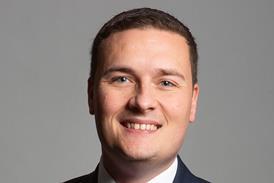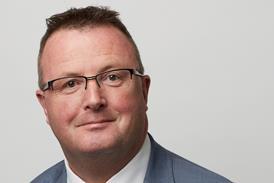At least 17 NHS trusts are considering opting out of the national risk pool for clinical negligence claims, plus the rest of today’s news and comment

5.30pm In today’s Executive Summary we look at the implications for NICE’s staffing guidance for A&E departments, and the growing number of trusts who are considering leaving the NHS Litigation Authority’s clinical negligence scheme.
Lord Carter’s interim report on provider productivity identified several areas where it said the NHS could save £5bn a year by 2019-20.
John Warrington, the Department of Health deputy director of procurement policy and research, said at a conference earlier this month that Lord Carter “was reluctant” to put a precise figure in the report “but was encouraged by ministers and others” to do so.
HSJ revealed on Friday that NICE plans to make public its completed work on accident and emergency safe staffing, despite being asked to suspend the programme by NHS England last month.
The Care Quality Commission has told HSJ it will look closely at NICE’s work and consider how to incorporate it into its inspection regime.
The providers, mainly in the North West, are in talks with global insurance firm Lockton about buying cover on the commercial market, the broker’s senior vice president Mark Riley-Pitt has said.
Every NHS trust in England is a member of the clinical negligence scheme managed by the NHS Litigation Authority.
11.00am The Daily Telegraph reports that elderly women are at greater risk from breast cancer because their knowledge of the symptoms is limited to a lump, experts have warned.
One in three women diagnosed each year is aged 70 and over, but half of this age group could not name a symptom other than a lump when asked, Public Health England said.
Evidence also shows that despite older women being at an increased risk, they are more likely to delay going to their GP.
10.20am The Daily Mail reports that almost 3.4 million patients are languishing on NHS waiting lists – the highest number in seven years.
The Mail writes that they include more than 6,100 people forced to wait at least a year for operations or treatment.
In the worst examples the delay has been nearly three years.
The figures are the highest since January 2008 and show the extent to which hospitals are struggling to meet the needs of the growing, ageing population.
Meanwhile, NHS England Medical director Sir Bruce Keogh has said that up to one in seven hospital procedures are unnecessary, the paper reports.
Sir Bruce described waste in the health service as ‘profligate’ and called for it to be reduced.
The former heart surgeon estimated that up to 15 per cent of the NHS budget is spent on treatments that should not take place.
10.10am The Independent reports that unhealthy soft drinks should be hit with a 20p sugar tax as a “useful first step” towards the long-term goal of taxing a wide range of products that fuel obesity, doctors’ leaders urge today.
The British Medical Association said imposing the tax could reduce the prevalence of obesity in the UK by around 180,000 people.
10.05am Sir Bruce Keogh has disclosed that up to one in seven hospital procedures is unnecessary.
According to the Sunday Telegraph the former heart surgeon estimated up to 15 per cent of the NHS budget is spent on treatments that should not take place.
An analysis by his staff reportedly showed unnecessary surgery and medication cost the health service up to £1.8bn a year.
The former advisor to Andrew Lansley writes that for all of the ambitious talk of delivering new models of care inside five years, the work to put them into effect is now crashing into the biting reality that a half decade is simply not a long enough period of time to effect change at this scale.


























No comments yet